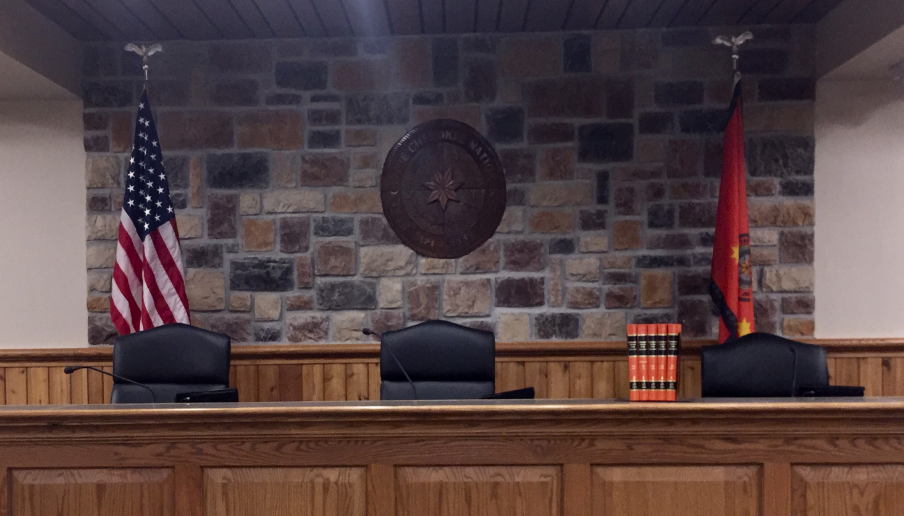
- Details
- By Levi Rickert
TAHLEQUAH, Okla. – The Council of the Cherokee Nation on Thursday passed legislation designed to address the opportunities and challenges created by the U.S. Supreme Court’s decision last month in McGirt v. Oklahoma.
Since the historic decision that ruled a significant swath of eastern Oklahoma remains American Indian land for certain legal purposes, there has been concern about its implementation.
Yesterday’s legislation, labeled the “Cherokee Nation Reservation, Judicial Expansion and Sovereignty Protection Act,” will protect the sovereignty of Cherokee Nation and its land, as affirmed by the high court’s decision, while protecting the health and welfare of Cherokee citizens and neighbors throughout the state of Oklahoma.
The Act went into effect immediately upon passage.
Cherokee Nation Principal Chief Chuck Hoskin, Jr. said the passage of the Act made clear that the Cherokee Nation is committed to affirming its sovereignty, while taking the necessary steps to expand our capacity and resources in the wake of the McGirt decision.
“Alongside the recently established sovereignty commission, today’s action will enable us to ensure our law enforcement and public safety systems can continue to function effectively as we respond to this historic Supreme Court victory for Indian Country,” Hoskin said in a statement.
The Act authorizes the expansion of Cherokee Nation’s judiciary, prosecution staff and marshal service to ensure adequate court, prosecution and law enforcement capacity, incarceration and rehabilitation services, as well as other important resources.
It will allow key Cherokee Nation agencies to enter into agreements, evaluate resources, and for courts to appoint referees who meet the Constitutional and statutory requirements for appointment. It also allows the Cherokee Nation to go after grants or federal funding for adequate staffing and resources.
The legislation passed unanimously.
“The Cherokee Nation is committed to fighting for our rights and our sovereignty, and with this act we can continue to do so while ensuring our communities have the resources and capacity they need,” District 9 Tribal Councilor Mike Shambaugh said. “I look forward to working with my fellow Council members, Chief Hoskin, and all of the Cherokee Nation to continue to address the challenges presented by the court decision and fight for the best outcomes for our people.”
On August 13, Chief Hoskin established the Commission for the Protection of Cherokee Nation Sovereignty. Alongside the Act, the commission will make recommendations and examine related areas on how the Cherokee Nation can best respond to the McGirt decision.
More Stories Like This
NCAI Passes Two Emergency Resolutions on Immigration Enforcement ActivitiesChickasaw Lighthorse Police Officer named Indian Country Law Enforcement Officer of the Year
Indian Gaming Association Rallies Broad Coalition Against Sports Event Contracts It Calls Illegal Threat to Tribal Sovereignty
Navajo Resources and Development Committee Issues Notice on Livestock Inspection Requirements
American Prairie, Tribal Coalition Files Protest Over Rescinded Grazing Rights
Help us defend tribal sovereignty.
At Native News Online, our mission is rooted in telling the stories that strengthen sovereignty and uplift Indigenous voices — not just at year’s end, but every single day.
Because of your generosity last year, we were able to keep our reporters on the ground in tribal communities, at national gatherings and in the halls of Congress — covering the issues that matter most to Indian Country: sovereignty, culture, education, health and economic opportunity.
That support sustained us through a tough year in 2025. Now, as we look to the year ahead, we need your help right now to ensure warrior journalism remains strong — reporting that defends tribal sovereignty, amplifies Native truth, and holds power accountable.
 The stakes couldn't be higher. Your support keeps Native voices heard, Native stories told and Native sovereignty defended.
The stakes couldn't be higher. Your support keeps Native voices heard, Native stories told and Native sovereignty defended.
Stand with Warrior Journalism today.
Levi Rickert (Potawatomi), Editor & Publisher

